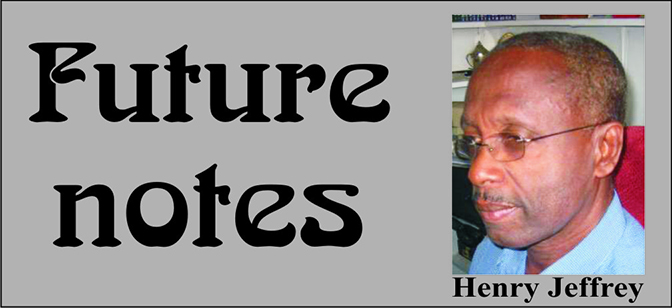On reading the Stabroek News article ‘Democracy is Bureaucracy’ (SN: 18/08/2017), I was again reminded of the need for conceptual clarity as we seek to broaden the
Questioned similarly, his AFC compatriot, Mr. David Patterson, was somewhat more conceptually correct but just as obscure. He claimed that the process was delayed because Prime Minister Moses Nagamootoo had to surmount some ‘hurdles’ before being able to take the Constitutional Reform Commission bill to the National Assembly. I believe that a more comprehensive explanation was not forthcoming because it would have involved detailing the pitfalls in which the coalition has now found itself in relation to these matters. I wrote some of the following before (SN: 15/07/2017), but let me try to identify and explain a few of those ‘hurdles’, ‘concrete situations’, ‘changing circumstances’ etc.
Speaking to the issue of conceptual accuracy, various levels of bureaucracy are to be found in almost every social organization, but we would not say that socialism is bureaucracy, although in practice it is usually far more bureaucratic that neo-liberal democracy. When we refer to political concepts in this aphoristic manner we must attempt to identify their essence and according to the online Oxford Dictionary, democracy is ‘A system of government by the whole population or all the eligible members of a state, typically through elected representatives.’ A bureaucracy is ‘A system of government in which most of the important decisions are taken by state officials rather than by elected representatives.’
A common characteristic of both systems is sloth, but it is differently derived. In a democratic polity, bureaucratic delay is usually the outcome of an admixture of the self-interestedness of the bureaucrats and the complications involved in formulating and implementing mainly universal rules intended to be bulwarks against bias, corruption, etc. On the other hand, one of the disadvantages of the democratic process is that, unlike a dictatorship in which a single ruler can quickly make and implement decisions, a democracy requires some kind of majority consensus. As a result, democratic delay is usually caused by political manoeuvres and infighting and I suspect that this is precisely what Mr. Ramjattan sought to deflect by appealing to the neutrality usually associated with the idea of bureaucratic sluggishness.
We can reject out of hand the suggestion that financial cost had a premium in this matter, for given the importance that was placed upon constitutional reform and local democracy by this government when in opposition, financing these activities could not have been too expensive for a regime whose profligacy has been established from its first days in office. Indeed, since the present Constitution contains provision, by way of a permanent Constitutional Reform Committee, for us to periodically make changes to the Constitution, it is yet to be properly explained why we needed to incur all the delay and cost associated with getting a Constitutional Reform Bill to parliament. One can only surmise that adopting this roundabout route may have been one of those ‘hurdles’ that had to be scaled in a deliberate process to delay.
Being in a coalition has fundamentally changed the ‘concrete situation’ of APNU and the AFC to a point where, matters not what is in the national interest, constitutional reform will result in both parties being weaker and it is this that best explains their reluctance to complete the reform process. Smaller parties in political coalitions usually have a difficult time maintaining their policy identity, and in my opinion, given our political history and the determination of the PNC to secure its interest, the AFC has lost a lot of support and is on the political ropes. Furthermore, it is difficult to visualise a constitutional reform process that does not end in rules that provide for post-election coalitions, and this could dismantle the solid phalanx that brought the coalition to government.
I have argued before that without constitutional reform to allow for a post-election coalition, the AFC has a solid excuse for having to stay in the coalition. If constitutional reform takes place, that reason will disappear and the AFC will be forced to go it alone or concoct another, likely weaker and more politically costly, reason for staying in a pre-election coalition with APNU. In this context, both parties are likely to emerge from a constitutional reform process weaker with the AFC out of government for a long time.
In a post-election coalition scenario, an arrangement between the PPP and the PNC will be more promising in terms of its potential to foster ethnic unity, and since it is now recognised that as substantial as possible an opposition must be left in place the AFC must be prepared to play that role! Since under the present system it is unlikely to win the presidency by gaining the larger plurality of the votes cast at a national elections, unless during the reform process APNU is able to entrench a different and more equitable governance structure, it is likely to find itself in a similar position as the AFC now is in any coalition relationship with the PPP/C!
Why it is surprising to anyone that the APNU+AFC enthusiasm for local democracy has waned and it is in no hurry to establish the Local Government Commission (LGC) is baffling to me. The LGC is empowered ‘to deal with as it deems fit, all matters related to the regulation and staffing of local government organs and with dispute resolution within and between local government organs’. According to my count the PPP/C won near 70% of the local democratic authorities at the 2016 local government elections. Therefore, the coalition is in no hurry to give up the leverage it now has over these authorities to a body whose activities are likely to be quite controversial and given the LGC governance structure, over which its control will be extremely limited.
All of this is quite uncertain and threatening but not unusual: we must hope that visionary leadership shows itself sooner rather than later.
